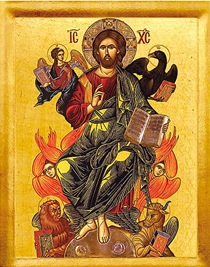Because I enjoy pain and suffering… I occasionally read LutherQuest. While some discussions are profitable, most of the discussions turn into personal attacks based on assumptions (you know what they say about assumptions…).
One discussion thread caught my eye recently and it was in regards in baptism by immersion. Apparently an LCMS church had installed a baptismal pool (the link doesn’t work anymore). Some came out firmly against baptism by immersion and others offered a more tempered response. One of the most interesting comments was “when have Lutherans ever done baptism by immersion?” What a denial of history. Pastor Weedon pointed at that Luther spoke about baptism by immersion and that for a good chunk of history baptism by immersion was the norm. I can understand those who are hesitant because they live in an area where baptism by immersion is required by denominations such as the Baptists). However, to completely deny history is just plain wrong. They are also all focusing on the baptism of adults. Why is it wrong to immerse a child? It isn’t! Why do you think the baptismal font at the seminary (CSL) is so big? Because it fits the space and so that we could immerse a child if we wanted!!
In a paper written this past summer I advocated a return (but not a requirement) of this practice. What a beautiful way to show the drowning of the Old Adam!! What a beautiful way to tie together the history of the church where baptism by immersion has been clearly practiced.
I will admit there are times when baptism by immersion is a bad thing. I could see a new convert insisting on baptism by immersion so that their family (who is Baptist) will recognize it. They need to understand that it is not the method that makes the baptism valid, but that the water and the Word are present. I could also see how baptizing by immersion in an area dominted by those who only baptize by immersion could be taken wrongly. It might be better at that point to make a bold confession of our faith and only baptize by pouring or sprinkling. Why? Because our fellow Christians need to be instructed in their error. We need to boldly confess that no matter what practice (immersion, sprinkling, pouring), God himself is present in the Water and the Word.
Filed under: Theology | 6 Comments »


